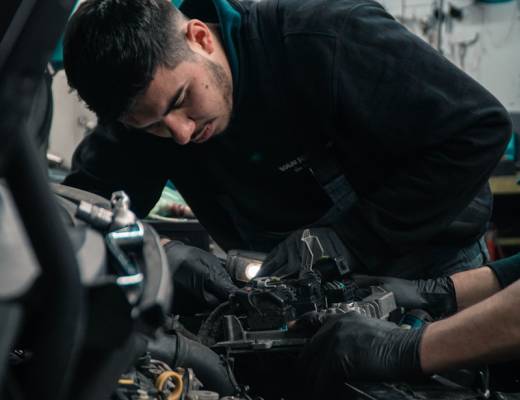Waymo is pulling away from competitors in the
autonomous taxi industry, establishing a significant lead as the race for driverless transportation intensifies. The Alphabet subsidiary has demonstrated remarkable progress in recent months, outpacing other major players in both technology development and commercial deployment.
Industry analysts point to Waymo’s expanding operational footprint and growing ridership numbers as evidence of its market dominance. The company has successfully scaled its driverless service beyond initial test markets, now operating in multiple major metropolitan areas, including Phoenix, San Francisco, and parts of Los Angeles.
Technology Advantage Drives Market Lead
Waymo’s technological edge appears to be a critical factor in its current market position. The company’s autonomous driving system, known as the
Waymo Driver, has logged millions of miles across diverse driving conditions, generating valuable data that continues to refine its performance.
Dr. Sarah Chen, an autonomous vehicle researcher at Stanford University, explains: “Waymo has built a substantial lead through years of methodical development and testing. Their vehicles demonstrate superior navigation capabilities in complex urban environments compared to most competitors.”
This technological maturity has translated into commercial advantages. Waymo’s vehicles operate without safety drivers in multiple cities, a milestone many competitors have yet to achieve consistently.
Competitive Landscape Shifts
While Waymo advances, the competitive field has experienced significant changes. Cruise, backed by General Motors, recently
scaled back operations following regulatory challenges in San Francisco. Meanwhile, Uber’s autonomous vehicle ambitions have been restructured after selling its self-driving unit to Aurora in 2020.
New entrants continue to emerge, however. Chinese companies like Baidu’s Apollo and AutoX are making progress in their domestic market, while traditional automakers including Ford, Volkswagen, and Toyota have increased investments in autonomous technology.
The competitive dynamics include:
- Established technology companies (Waymo, Baidu) are leveraging AI expertise
- Traditional automakers are forming partnerships or acquiring startups
- Regional players focusing on specific markets with favorable regulations
Commercial Deployment Accelerates
Waymo’s commercial strategy has focused on gradual expansion with an emphasis on safety and reliability. The company now offers thousands of weekly driverless rides, generating revenue while continuing to refine its technology.
The transition from research project to commercial service has been Waymo’s most significant achievement,” notes Michael Torres, transportation analyst at
Morgan Stanley. “They’ve demonstrated that autonomous taxis can operate as a viable business, not just a technological showcase.”
This commercial focus has attracted additional investment. Alphabet continues to fund Waymo’s expansion, while external investors have contributed billions in recent funding rounds,
valuing the company at over $30 billion.
Regulatory and Public Acceptance Challenges
Despite
technological progress, regulatory frameworks remain inconsistent across different regions. Waymo has worked closely with transportation authorities to secure necessary permits and build trust with regulators.
Public acceptance presents another ongoing challenge. Recent surveys indicate improving consumer attitudes toward autonomous vehicles, though concerns about safety and reliability persist among potential riders.
Waymo has responded with transparency initiatives, including publishing detailed safety reports and offering community education programs in areas where it operates.
As the autonomous taxi market continues to develop, Waymo’s current lead provides advantages in data collection, operational experience, and brand recognition. However, the industry remains dynamic, with technological breakthroughs, regulatory changes, or new business models potentially reshaping the competitive landscape.







